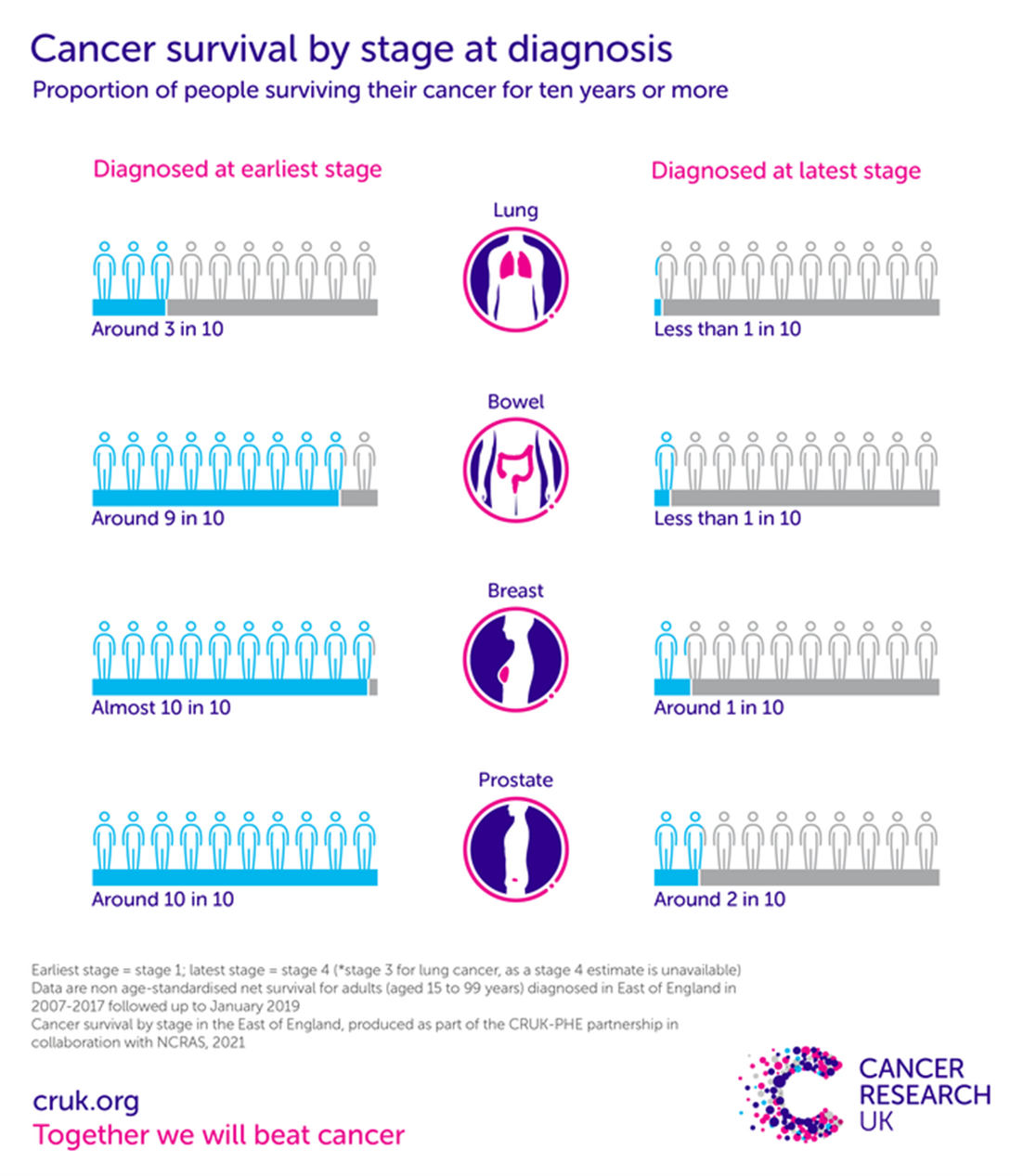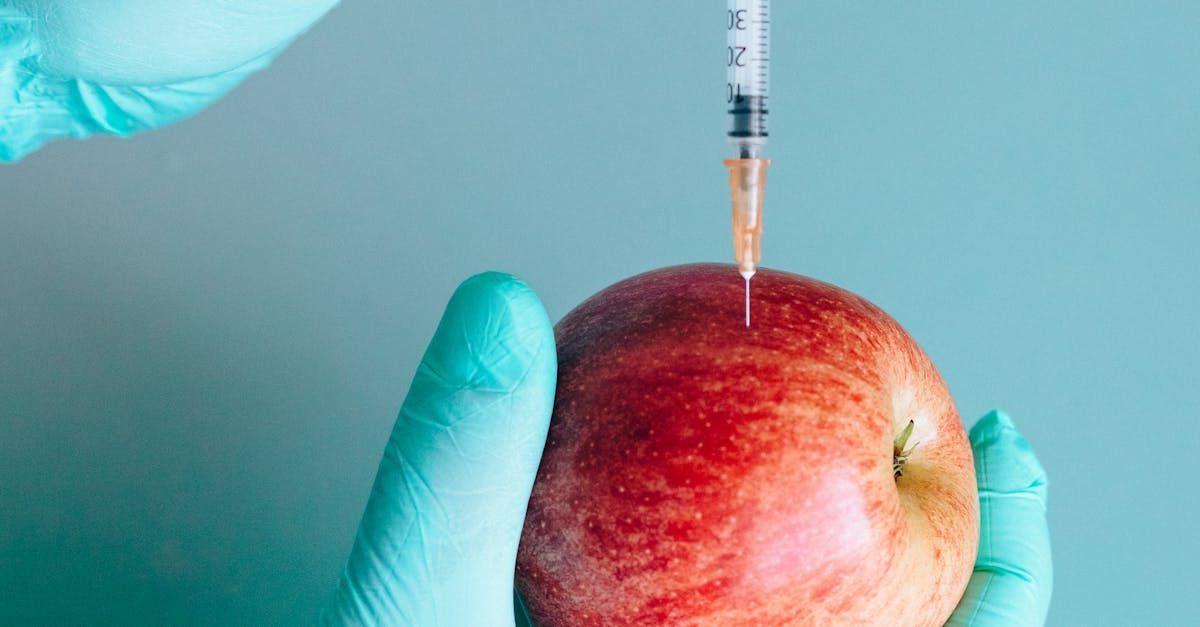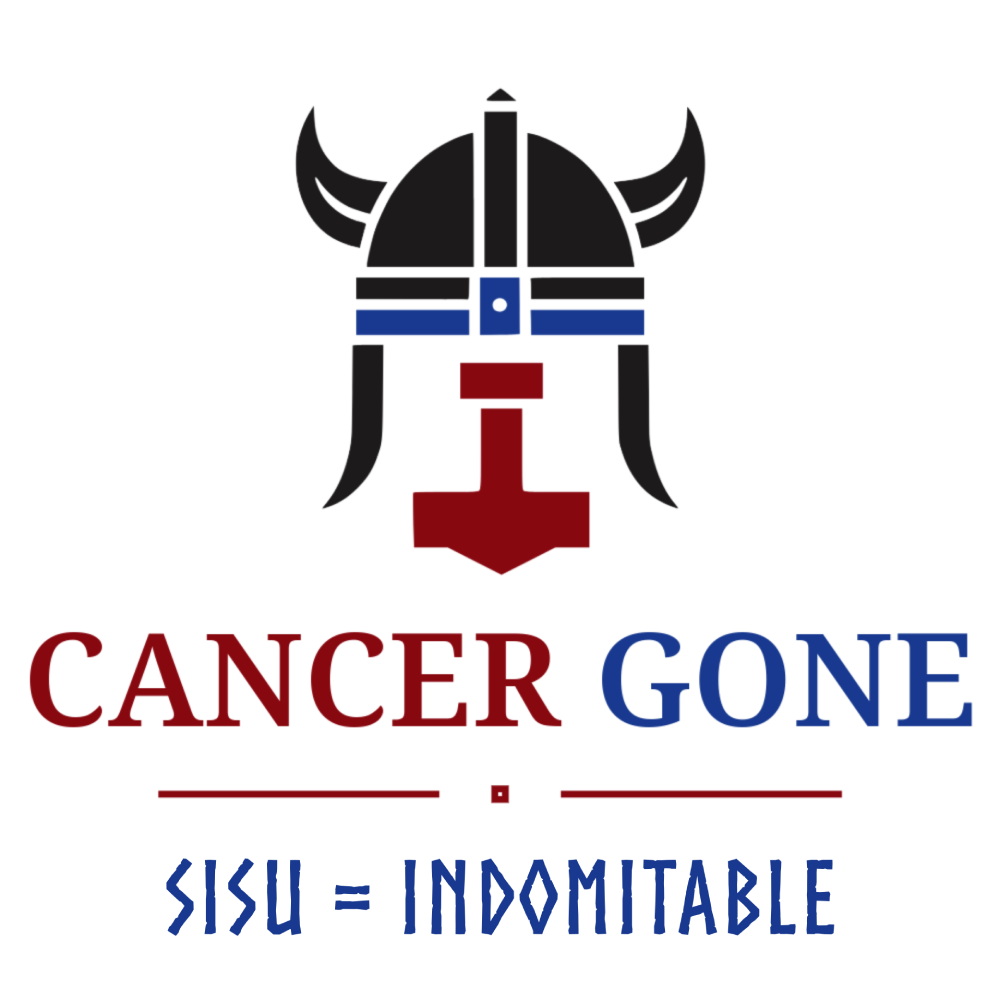Cancer is the silent killer
Silent cancers are cancers that do not have any noticeable early symptoms, and in such cases, patients may have no symptoms of cancer until the advanced stages. The doctor diagnoses silent cancers, usually in their advanced stages. However, in some cases, these cancers are detected during the diagnosis of other conditions. Therefore, high–risk individuals must regularly screen themselves to determine the presence of these cancers at an early stage. [1]
Some silent cancers include breast cancer, ovarian cancer, colorectal cancer, pancreatic cancer, and lung cancer. The symptoms to look out for are listed here. LINK https://www.hcgoncology.com/blog/6-silent-cancers-that-you-need-to-keep-an-eye-on/
These cancers can be prevented through screening: [2]
- Breast
- Cervical
- Colon
- Lung
In its Tweet, CDC (@CDC_Cancer) says, “Screening tests can find #breast, #cervical, and #ColonCancer early, when treatment is likely to work best. #LungCancer screening is recommended for some people who are at high risk. #Cancer doesn't wait and neither should you.”
As we have lost two friends to late stage cancers in the last six months alone, we whole-heartedly endorse this advice. Read more.
TYPES OF TESTING
If you have a symptom or a screening test result that suggests cancer, your doctor will find out whether it is due to cancer or some other cause. There is no single test that can diagnose cancer. So your doctor may start by asking about your personal and family medical history and doing a physical exam. They may order lab tests, imaging tests (scans), or other tests or procedures. You may also need a biopsy, which is often the only way to tell for sure if you have cancer.
Certain blood tests can detect cancer in the body by identifying specific markers, cells, or substances produced by cancer cells. However, these tests are often not sufficient on their own to diagnose cancer.
Read more LINK https://www.cancer.gov/about-cancer/diagnosis-staging/diagnosis
National Cancer Institute
[1] https://www.hcgoncology.com/blog/6-silent-cancers-that-you-need-to-keep-an-eye-on/
[2] https://www.cdc.gov/cancer/prevention/screening.html
"The Viking gene survey helped find my cancer"
A Shetland woman has been telling how a search for a gene variant alerted her to her breast cancer diagnosis.
Christine Glaser, from Whalsay, had been a participant in Viking Genes, a research project that looked at the genetic make up of people from the Orkney and Shetland Islands.
Since those tests were taken, the understanding of the significance of certain genes has improved and last year geneticists sought special permissions to go back to those who took part in the study to ask if they wanted to know their results.
Although she had lost a sister to ovarian cancer, the family was unaware many of them carried a BRCA 2 gene variant that increased their risk of breast, ovarian and prostate cancer. Christine’s cancer was caught early and successfully treated.
EARLY DIAGNOSIS- WHAT A DIFFERENCE

COMMON SIGNS AND SYMPTOMS
According to the American Cancer Society, these are some of the more common signs and symptoms that may be caused by cancer.[1] However, any of these can be caused by other problems as well.
- Fatigue or extreme tiredness that doesn’t get better with rest.
- Weight loss or gain of 10 pounds or more for no known reason.
- Eating problems such as not feeling hungry, trouble swallowing, belly pain, or nausea and vomiting.
- Swelling or lumps anywhere in the body.
- Thickening or lump in the breast or other part of the body.
- Pain, especially new or with no known reason, that doesn’t go away or gets worse.
- Skin changes such as a lump that bleeds or turns scaly, a new mole or a change in a mole, a sore that does not heal, or a yellowish color to the skin or eyes (jaundice).
- Cough or hoarseness that does not go away.
- Unusual bleeding or bruising for no known reason.
- Change in bowel habits, such as constipation or diarrhea, that doesn’t go away or a change in how your stools look.
- Bladder changes such as pain when passing urine, blood in the urine or needing to pass urine more or less often.
- Fever or nights sweats.
- Headaches.
- Vision or hearing problems.
- Mouth changes such as sores, bleeding, pain, or numbness.
The signs and symptoms listed above are the more common ones seen with cancer, but there are many others that are not listed here. If you notice any major changes in the way your body works or the way you feel – especially if it lasts for a long time or gets worse – let a doctor know.
Women: 20 Signs you should not ignore
PRESSURE FOR EARLY DETECTION
According to the charity Cancer Research UK , about 20,000 deaths could be avoided every year in the UK by 2040 if ministers adopted a bold new plan to speed up diagnosis and get people treated quickly.
The NHS has already set a target to diagnose 75% of cancers at the earliest stages of 1 or 2 by 2028.[2]
testing required.
GET TESTED FOR CANCER ROUTINELY- FUTURE YOU AND FUTURE YOU’S GRANDCHILDREN WILL THANK YOU.
[1] https://www.cancer.org/cancer/diagnosis-staging/signs-and-symptoms-of-cancer.html
[2] https://www.theguardian.com/society/2023/nov/28/thousands-dying-needlessly-cancer-uk-report
SHARE THIS PAGE





